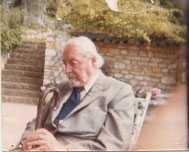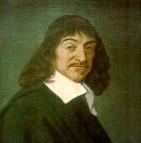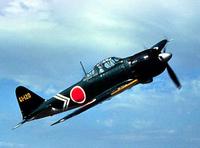![]()


Hamlet said that he could be bounded in a nutshell and count himself king of infinite space. And so we all can. We have a three pound universe inside our skulls. Some would argue that we don't stop at the porches of our eyes, ears, and skin, that these receptors are themselves only mental. A sensation, be it visual, tactile, olfactory, cannot refer to anything beyond itself--nothing "out there." Thus the question of boundary, of stopping, is irrelevant. Infinite space, old chap, infinite space is what we are.
"Out there" is itself an idea, some would say. They would add, Oh, sure, we can touch a table, kick a rock, hear a band, see a wall but the touching, the kicking, the hearing, the seeing are only perceptions linked with sensations.
Samuel Johnson tried to prove a rock was real by kicking it. To
George Berkeley's theory that all is mental, solipsistic, he said "I refute it thus!" after kicking the rock. He refuted nothing. He felt the rock against his shoe, which was only a sensation. He saw it skitter down the street, also sensation. Etc. The idea of an object is just that--an idea. We must live with assumptions, not validations.
We can assume a subjective world with Bishop Berkeley or one of subject and object with Dr Johnson, but assume we must. Unless, through meditation, we learn to see through assumptions altogether, as has been told of Eastern sages.
They pose the question, Who am I? Harvey Smedlap? That's only a name. Spouse, parent, lover? Those are also labels. How about personality or mood--loyal, hard working, angry, sad? These features come and go. The sages say I am not anything described by words; yet, I am. Here is a koan from Zen: What was my face before my parents were born? Think about it. Meditate on it. It becomes quite revealing.
More on this discussion at a later date. Here, though, is a related item, one that addresses the issue of consciousness. Consider it in terms of subject (mind) losing its object (body). Does all consciousness depend on the brain? What is consciousness? Or, what is
is?
In the passages which follow, the writers assume that conscious is localized in the brain. They indicate no curiosity toward after-effects on the body. Nor is it the capitalized Consciousness of which sages speak.
Extra! Extra! Read all about it! Guillotined head opens its eyes! This is the bizarre story of Monsieurs Beaurieux and Languille and a macabre study done in 1905:
Q. Would a guillotined person die instantly or would the severed head live long enough to feel itself hit the ground? How could anyone but those executed ever know?
A. This grisly question is more answerable than one might think. In France in the days of the blade, some of the condemned were asked to blink their eyes to show continued consciousness after decapitation, and a few heads blinked for up to 30 seconds, says Dale McIntyre in
New Scientist. "How much of this was voluntary and how much due to nerve reflex action is speculation. Most nations with science sophisticated enough to determine this question have long since abandoned decapitation as a legal tool."
Addressing the reflex issue, one
Dr. Beaurieux observed the execution of a murderer in 1905, told in
History of the Guillotine by Alister Kershaw. First he saw in the head spasmodic movements of eyes and lips for 5-6 seconds. Then the face relaxed, the lids half closed, "exactly as in the dying whom we have occasion to observe every day in the exercise of our profession."
"It was then that
I called in a strong sharp voice: 'Languille!' " The lids lifted, and Languille's "undeniably living eyes" fixed on the doctor, after which they closed again. Moments later he called out again, fetching another look by Languille. But a third call went unheeded.
"I have just recounted to you... what I was able to observe. The whole thing had lasted 25-30 seconds."
The above Q and A excerpt comes from the
Cincinnati Inquirer (cincinnati.com), 26 August 2002.
The beheading account below, by Cecil Adams, derives from a site called
The Straight Dope (straightdope.com) and is dated 12 June 1998:
After
Charlotte Corday was guillotined for murdering
Jean-Paul Marat, the executioner
slapped her cheek while holding her severed head aloft. Witnesses claimed the cheeks reddened and the face looked indignant. According to another tale, when the heads of two rivals in the National Assembly were placed in a sack following execution, one bit the other so badly the two couldn't be separated.
[Can the brain be proven to remain conscious for a duration after decapitation?] This didn't seem like the sort of question that could ever be conclusively resolved.
Or so I thought.
Then I received a note from a U.S. Army veteran who had been stationed in Korea. In June 1989 the taxi he and a friend were riding in collided with a truck. My correspondent was pinned in the wreckage.
The friend was decapitated. Here's what happened:
"My friend's head came to rest face up, and (from my angle) upside-down. As I watched, his mouth opened and closed no less than two times.
The facial expressions he displayed were first of shock or confusion, followed by terror or grief. I cannot exaggerate and say that he was looking all around, but he did display ocular movement in that his eyes moved from me, to his body, and back to me. He had direct eye contact with me when his eyes took on a hazy, absent expression . . . and he was dead."
I have spoken with the author and am satisfied that the event occurred as described. One can of course never be certain about these things. Nonetheless I repent my previous skepticism.
Cecil Adams
__________________________________________________
During my stay in Paris, the sight of a public execution revealed to me
the weakness of my superstitious belief in progress. When I saw the head divided from the body, and heard the sound with which they fell separately into the box, I understood, not with my reason, but with my whole being, that no theory of the wisdom of all established things, nor of progress, could justify such an act; and that if all the men in the world from the day of creation, by whatever theory, had found this thing necessary, it was not so; it was a bad thing, and that therefore I must judge of what was right and necessary, not by what men said and did, not by progress, but what I felt to be true in my heart.
Leo Tolstoy
__________________________________________________
Of his marvelous invention,
Doctor Joseph Guillotin said that it was swift, merciful, and that its victims would only feel a rush of fresh air. Was his confidence based on the testimony of somebody like Languille? ;-)















